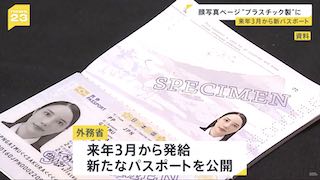Jul 29 (newsonjapan.com) - Betting and gambling in their various forms have always been popular entertainment in Japan, where the government has tried to navigate and mitigate control of the industry to prevent negative social consequences like addiction and financial hardship.
As betting is ingrained in the Japanese culture, the country also has various publicly operated activities such as horse racing, boat racing, motorcycle racing and keirin bicycle racing contributing significantly to the nation's revenue, totaling billions of dollars annually.
There is also pachinko, a popular pinball-style game played at around 7,600 establishments across the country (which technically operate in the gray zone of the law). This form of gambling generated a staggering ¥114.6 trillion in sales in 2020 alone.
Keirin cycling
Keirin is a unique form of bicycle racing. Keirin means "contest" and "wheel" in kanji. Races are held at different times throughout the day, with ticket prices costing ¥100 for access to around 10 races.
The sport has a long history, dating back to 1948 when it was introduced to raise funds for the country's reconstruction after World War II. The sport operates in 43 velodromes across Japan and generated over ¥1 trillion in revenue in 2022.
Keirin is strictly regulated, with automated gambling and riders required to go into lockdown during meets, which can last from three to six days. During this time, they cannot access mobile phones or any online device. Violations can result in fines, suspension or even loss of professional license.
Horse racing
Horse racing, overseen by the agriculture ministry, is the most lucrative among government-sanctioned sports. It generated ¥3.25 trillion in revenue in 2022 from just 10 horse racing venues. With more than 21,000 registered racehorses in 2020, horse racing remains a popular betting option for many enthusiasts.
Horse racing in Japan has its roots in a tradition dating back to the eighth century when it was a religious ceremony for the Imperial Court. European settlers' introduction of Western-style horse racing in the 19th century paved the way for Japan's modern version of the sport. Yokohama became the birthplace of modern horse racing in Japan, following European customs and using European-style dirt tracks.
Despite legal difficulties with betting, horse racing in Japan was allowed to continue after 1923 with the formation of 11 racing clubs and the Imperial Racing Society.
Motorcycle racing and motorboat racing
Motorcycle racing is a lesser-known sport, generating approximately ¥100 billion in revenue in 2022. Japan has only five designated motorbike racing tracks. Motorboat racing saw six drivers compete around a 600-meter course and recorded about ¥2.4 trillion in sales in the same year.
Kyōtei, also known as boat races, was established to raise funds for motorboat development, shipbuilding, tourism, public interest projects and regional finances. Kyōtei grew in popularity from the late 1960s until 1991, surpassing horse racing as the biggest form of race gambling in Japan from 1972 to 1983. However, its sales declined after the Bubble Economy burst in the early 1990s.
Boat races take place in an artificial lake with a grandstand on one side. During the race, eight single-person boats compete by racing several laps around buoys at either lake's end. The boats receive a running start, and the winner often has the best position around the first turn. Bettors can place bets on the top two or three finishers, either in order or not in order.
Public lottery
In addition to government-run sports, Japan operates a public lottery system, which generated about ¥813 billion in revenue in 2021. In the fiscal year 2022, the annual proceeds from the Sports Promotion Lottery (toto and BIG lottery) amounted to approximately ¥111.42 billion.
Lotteries in Japan have a long history dating back to the 15th century. Temples and shrines used lotteries to raise funds for repairing and maintaining their facilities, with prizes often consisting of amulets for happiness or good fortune.
In 1842, the Tenpō government imposed a complete ban on lotteries, which lasted for the next 103 years. It wasn't until after World War II, in October 1945, that the modern lottery system in Japan was introduced. The lottery was implemented to prevent post-war inflation. In 1948, each prefecture was allowed to establish its local lottery to raise funds for post-war reconstruction efforts.
Pachinko
Pachinko is a popular form of gambling and entertainment unique to Japan, with pachinko parlors available nationwide. These parlors are brightly lit and filled with the distinct sounds of metal balls cascading down the machines.
To play the game, players purchase small steel balls and shoot them into the playing area, which is filled with pins and obstacles. The objective is to land the balls in certain pockets or holes, and if successful, players win more balls that can be exchanged for prizes or tokens. These prizes can range from electronics, toys or other goods.
As mentioned previously, pachinko operates in a legal gray area in Japan, and exchanging cash for winnings within pachinko parlors is prohibited due to strict gambling regulations. Players can exchange their tokens for cash at a separate location near but outside the Pachinko parlor.















